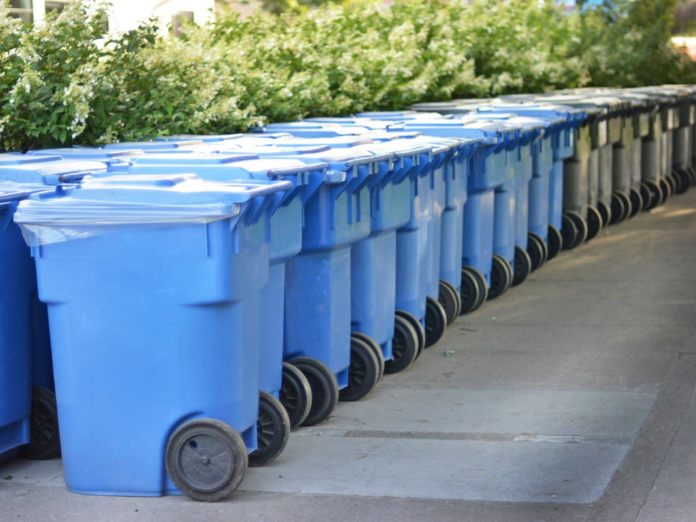Politics & Government Danvers Finance Committee Backs $250K For Schools, No Free Trash Bins The Finance Committee made its recommendations on warrant articles ahead of the May 15 annual town meeting. Replies (2)
The Danvers Finance Committee recommended that residents reimburse the town for nearly $1 million in new trash and recycling barrel purchases required under the new collection contract. (Shutterstock)
DANVERS, MA — The Danvers Finance Committee broke with town officials on its recommendations for using free cash to fund a school supplemental special education budget and pay for the new trash and recycling barrels for residents that are required as part of the collection contract beginning on July 1.
During Thursday night’s meeting, which included some spirited exchanges between Finance Committee members, residents and town officials, the Finance Committee recommended spending an additional $250,000 on top of the $1.5 million in free cash that had been requested on the special educational supplemental fund and to require residents to pay back the $980,000 needed to buy each homeowner one 64-gallon refuse barrel and one 96-gallon recycling barrel necessary for the automated pickup as part of the new trash contract. (Also on Patch: Danvers Trash Fee Debate Heats Up At Select Board Meeting)
The Select Board and Town Manager Steve Bartha had recommended those purchases be made using the free cash — essentially a town surplus of property taxes paid last year compared to expenses. While Finance Committee members, who made a similar push at last week’s Select Board meeting, argued the town should not be using its limited resources to be buying trash bins for residents when there are higher priorities, while those who spoke out against the change in public comment said the making property owners pay for the bins amounted to a hidden tax increase and should be included as a service funded by taxes they have already paid.
Town meeting members will ultimately determine the fate of both proposals with Select Board Chair Daniel Bennett saying it would take up a means to recover the costs of the initial town purchase of the new barrels — which was agreed to be necessary to begin the new trash contract in July — at an upcoming meeting should the free cash usage be rejected at town meeting. “People can say (the Finance Committee is) making policy, and not being advisory, go right ahead (and say it),” said Finance Committee member Michael Landers. “The truth is that I can’t support a policy in which we prioritize a $1 million payment to buy residents trash cans. Not when we all agree — at least this board agrees — we have dramatic needs in other areas within this town that are far more important than residents being bought trash cans.”
It was estimated that the two bins would cost each homeowner $120. “The taxpayers have stepped up,” town meeting member Bill Bates said in public comment. “We all need a break. We have been through tough times. Maybe, maybe, this $980,000 is a statement to the taxpayers of this town that we appreciate you.
“You’ve kept this town going. You’ve paid those taxes.” The school funding increase recommendation was also approved unanimously based on the School Committee and school officials’ statements that increased funding in special education programs of about $525,000 was dropped from the original budget proposal so it would meet the parameters of a relative-level-funded budget. “What I’ve seen here, and I have always not felt good about it, is that we are always sort of just level funding,” Finance Committee member Paul Pawlak said. “You level fund and you take a half step forward and one step back. It’s not that everyone isn’t working at it … but you can only level fund so far. “We are giving the taxpayers, we hope, the best possible education they can get for their dollar. And the quality of education that allows you to sell your home eventually, or not, at a better level than if you’re living in an area that has a terrible education system and people don’t want to live there. “To spend this kind of money is the step we’re taking forward, and it’s the step we have to take, because we can’t take level funding anymore.”




